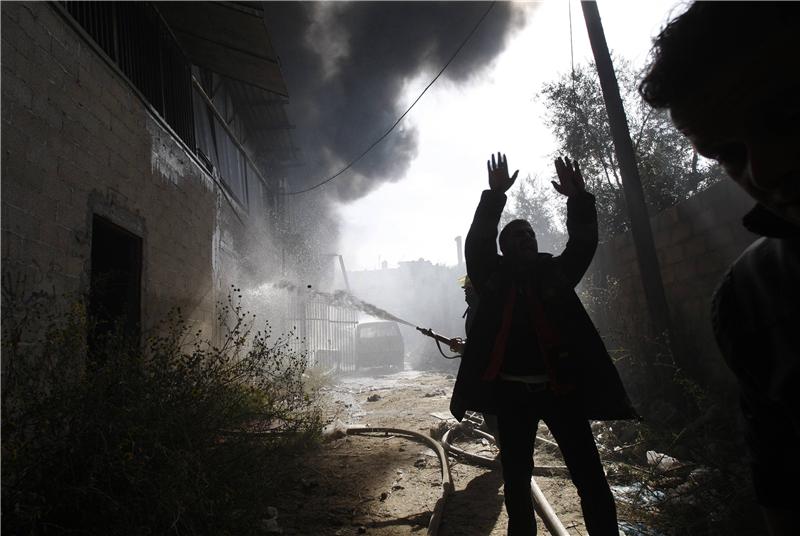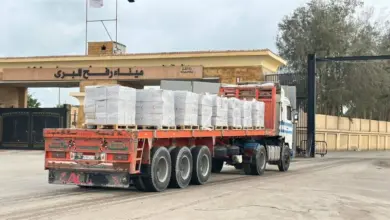
Renowned television host Lamis al-Hadidi created a brouhaha across the airwaves this week when she said she had eyewitness accounts of tents being set up in the border towns of North Sinai to house Palestinians fleeing the violence of Gaza.
Israel’s Pillar of the Cloud operation, raging in full swing since Wednesday, has claimed more than 100 lives, as of press time, while the injured number in the thousands.
But Hadidi was not concerned with the intuitive and historic act of fleeing violence and becoming a refugee. She was rather anxious about a long-lasting plot to settle the Palestinians of Gaza in Sinai.
Hamas political bureau chief Khaled Meshaal had to sooth these anxieties in a press conference held at the Egyptian Press Syndicate Monday when he was showered with questions about the resettlement of Palestinians in Sinai.
“Egypt is Egypt and Gaza is Gaza, and there is no alternative for the right of return. … Don’t worry, brothers,” Meshaal said. Egyptian officials did the same.
But the narrative itself resonates with many who exhibit anti-Palestine sentiments and relate to the decades-long conflict next door as an obstruction to Egypt’s development.
Yet those many do not mask a prevalent sense of solidarity with the Palestinian cause, one that activists describe as departing from the same struggle.
Activist Gigi Ibrahim believes the Palestinian cause lies at the heart of the Egyptian revolution. State repression and increasing poverty in Egypt, she says, are inextricably linked to maintaining the Camp David peace accords and ties with Israel.
Ibrahim had just returned from a brief visit to Gaza, where she, alongside dozens of activists, crossed from the Rafah border town to the war-torn strip in an expression of solidarity.
For her and others, the peace treaty with Israel means the suppression of student activism on campuses and the evolution of a new economic order in the country that led to the impoverishment of many. The ensuing protest movement, both in solidarity with Palestine and against domestic politics, is considered by many rehearsals to the revolution that ousted Egypt’s rulers.
“Both are anti-imperialist causes that produced a movement of dissent against [former President Hosni] Mubarak. Protests for Palestine would end with chanting against him. The Palestinian cause has its stamp on every catalyst that led to this revolution,” Ibrahim explains, adding that it is this connection that made the Arab Spring a dreadful experience to many abroad.
“This is why there can’t be democracy in the Arab world,” she continues. “Egyptians do not agree with normalizing ties with Israel, nor do they want natural gas to be exported there, even if only for economic reasons given the shortages we have domestically. Democracy would thus undermine the regional [Israel] and global [US] superpowers’ imperialist agenda. That is why they need dictators to repress us here.”
Activist Mohamed Waked concurs, adding that the occupation of Palestine is but one manifestation of imperialism, but is significant in the sense that it is “the most solid one.”
“One can link Palestine and the Arab uprisings together easily, because in order to maintain the occupation, there needs to be an agent repressing people. Our collective awareness sees the [International Monetary Fund] loan, the Gaza war, the US dominating oil prices and Egypt providing logistical services to the US army as separate issues, and fails to recognize a center of imperialism at the heart of these problems,” says Waked. “What the revolutions in Arab countries did, essentially, is remove the agents, but they are easily replaceable. The US is not worried about that, as long as they can play the musical chair and remain in control of Egyptian domestic policy”
This piece was originally published in Egypt Independent's weekly print edition.




